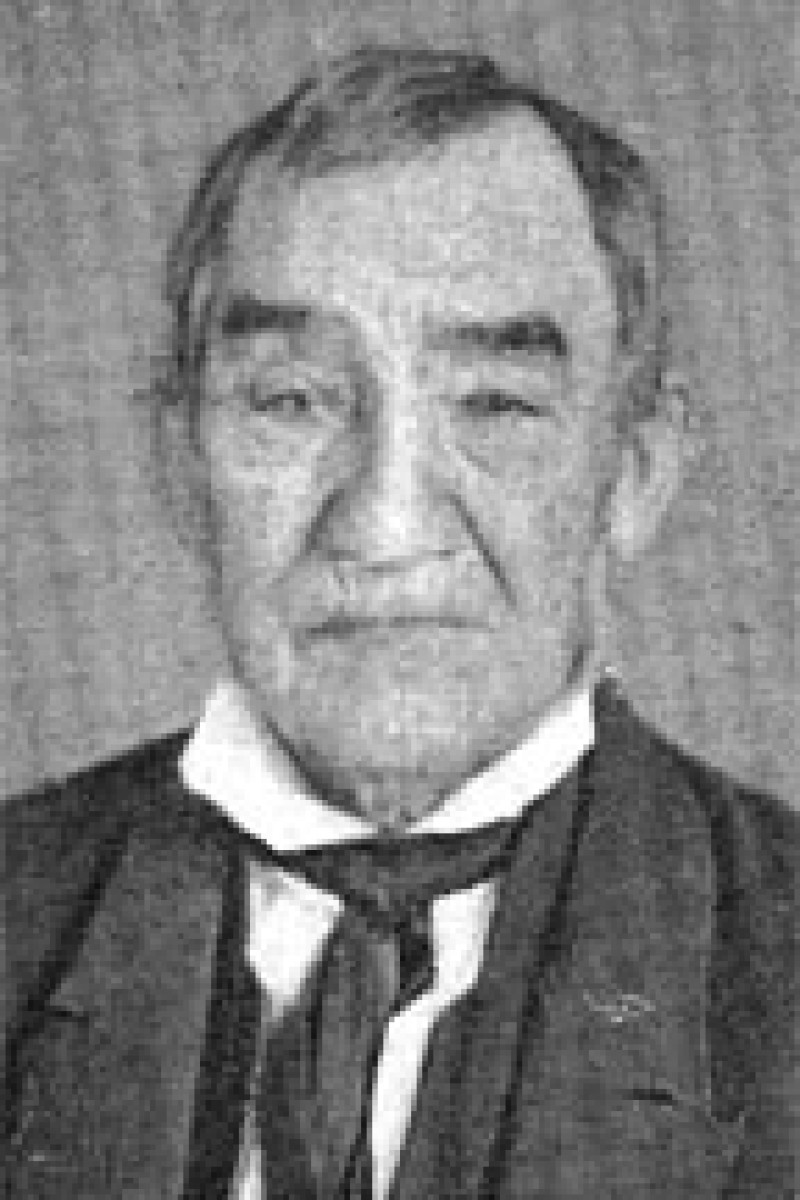Joshua Collett
An active member of the Lebanon community, Joshua Collett served as a common pleas court judge, prosecuting attorney, bank director and Miami University trustee, all prior to his election to the Supreme Court of Ohio.
He was born in Berkeley County, Va. (now West Virginia) on Nov. 20, 1781 to Daniel and Mary Haines Collett. He was educated in the local schools and studied law in Martinsburg, Va. before immigrating to the Northwest Territory in 1801, following his 21st birthday. Collett stopped in Cincinnati for a year and eventually settled in Lebanon, where he became the first resident lawyer. In 1807, Collett was appointed prosecuting attorney for the First Judicial Circuit and held the position for 10 years.
Collett became active in the Lebanon community as well; in 1811, he, John McLean and Dr. Joseph Canby were among the Warren County men who organized the Lebanon Literary Society and the three served as the first directors. In 1816, Collett joined Dr. Canby and others to establish the Lebanon Miami Banking Company and he served as one of the bank’s directors.
From 1824 to 1841, during the administration of Miami University President Robert Hamilton Bishop, Collett served on the board of trustees. Collett also took an active role in Warren County’s public schools by serving at various times between 1825 and 1853 on the board of county school examiners, who certified individuals wanting to teach in the county’s schools.
In 1817, Collett was elected by the Ohio General Assembly to serve a seven-year term as judge of the Court of Common Pleas for the Seventh Judicial District, which included Warren County. Collett was re-elected in 1824.
On Feb. 6, 1829, the General Assembly elected Collett to the Supreme Court of Ohio. Gov. Allen Trimble issued Collett’s commission on Feb. 10, 1829. At the end of his term, in February 1836, Collett retired to his farm in Lebanon. His opinions can be found in volumes 4 through 7 of Ohio Reports. Collett served as Chief Judge for the December 1833 term of the Court, but because of illness, did not attend the December 1834 term.
In the 1834 case James Taylor v. Miami Exporting Company and others, Chief Justice Taylor wrote in the majority opinion for the Court that a bank may receive stockholders’ transfers of their bank stock to satisfy payments of debts, even if debtors have enough ready cash to pay the debt. Collett wrote further that if one of the members of the bank’s board of directors purchases the stock to multiply his vote on the board of directors and, after the votes are cast, sells the stock at a profit, he is under no obligation to reimburse the stockholders who transferred their stock.
After leaving the Court, Collett retired from the practice of law and lived on his farm in Lebanon for the remainder of his life. Collett returned to public life on two occasions when he served as a Whig Party delegate to the Ohio Electoral College that convened following the presidential campaigns in 1836 and in 1840. Collett twice traveled to Columbus to cast his votes for William Henry Harrison, who carried the popular vote in Ohio in each November campaign.
Collett married Eliza Van Horne on Oct. 18, 1808 in Warren County and both were members of the Baptist Church. She died Feb. 19, 1846, and he died May 23, 1855. Both were buried in the Baptist Church section of the Pioneer Cemetery in Lebanon.

b. Nov 20, 1781
d. May 23, 1855
16th Justice of the Supreme Court of Ohio
